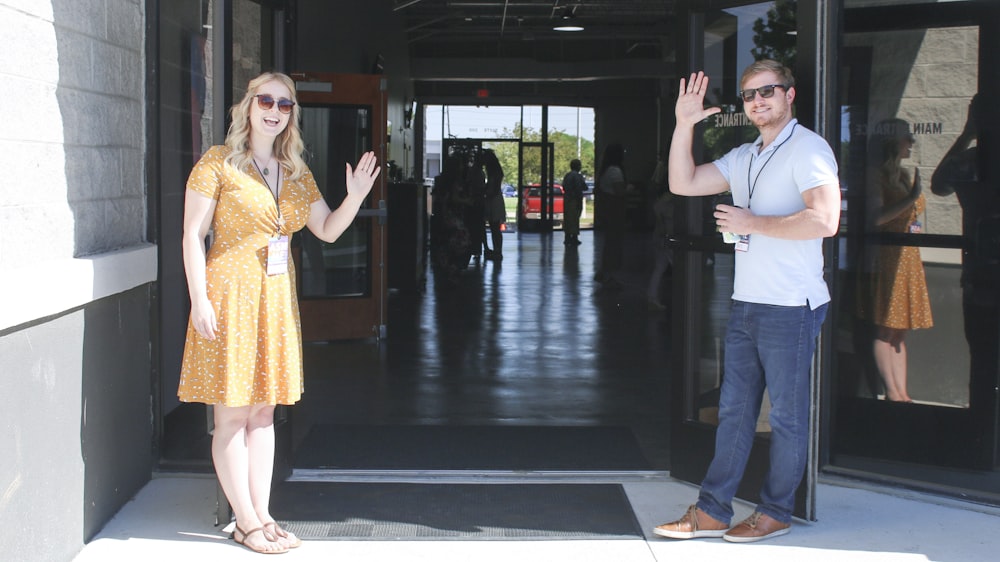Recently, I attended a virtual conference with some of the team from my new church, Community Covenant Church, on church systems. They spent a great deal of time discussing how to engage people, engage guests, and help them take their first steps at a church.
And I was reminded of something important: Words matter. What you say, and when you say it, matters a great deal. What you say as a person, leader or church reveals your values.
When you stand on a stage and address those new to your church, what you say matters, it has always rubbed me the wrong way when I hear the word visitor at a church instead of guest. Now, you might wonder, is the difference really a big deal? I think it is.
Here’s why: A visitor is someone you expect not to come back. A guest is someone you prepare for. So by calling them guests, we are seeking to communicate we are thinking about them, expecting them to come, and have thought through their experience from start to finish.
Here are some practical things to do for guests:
- Have friendly faces outside who say, “hi.” This goes a long way. Telling someone, “We’re glad to see you,” communicates so much.
- Create a culture of “showing” not “pointing.” If a guest looks lost or wants to know where a bathroom is or the auditorium, don’t point and say, “It’s down there on the left.” Walk with them to where they need to go, show them.
- Have signs. This is crucial. People don’t know where things are. I think a church should always have more signs than they have. This helps guests move through your church unnoticed if they choose to do so, allowing them to move at their own pace. You should have signs that tell people where to park, where the front door is (this isn’t always obvious at a church), where bathrooms are, where kids go, and where the auditorium is.
- Make guest sign-in for kids fast and secure. When parents drop their kids off, they are dropping off their most precious possession. This is more nerve-wracking than most churches realize. It should be secure. Parents (or the adult responsible for the child) should have to fill something out and get a badge that enables only them to get their child (no tag, no pick-up.) Leaders in the kid’s area should have shirts, vests, badges, something that identifies them as workers.
- Call them guests. This is self-explanatory, but this communicates who you think they are and your preparedness for them.
- Tell them why you do what you do. Where else do you stand and sing with a group of people songs you don’t know? Where else do you listen to a 30-60 minute message without moving? Communion? Prayer? Announcements? All these things can be foreign to people, so please explain what you are doing and why you are doing them. Tell them how long the service will be and stick to that. If you preach through books of the Bible, tell them why you do that. A simple line, “We’re going to sing songs to God that we believe to be true about him.” Or, “we love to preach through books of the Bible as we believe the Bible is true and authoritative for our lives.” Things like this also remind regulars why you do what you do.
- Have clear next steps. If your service is step 1, what is step 2? What should they do? How do they get more involved? Make this obvious.
- Let them identify themselves in their time. Let guests tell you who they are when they want. Please don’t give them a visitor badge or a nametag, and don’t make them stand up. Then, when they are ready, they’ll tell you they are there.
- Speak to them, let them know you know they are there, and expected. For example, say things like, “You may be new” or, “You might be here today, and you don’t know why you are, or you may have been dragged here by a friend” or, “You might be here and aren’t sure you believe in Jesus.” This says, “I’ve thought about you; this message is for you. I’m going to speak to where you are.” This also tells your regulars it is safe to bring their friends here.
- Give them something. People think churches want something from them, money, time, etc. At the end of the service, tell guests where they can get a gift for being with you as a thank you. My preference is not to make them give you a connection card for a gift that doesn’t feel like a gift. Just be generous to them.
- Invite them back. Tell everyone, “We’d love to see you next Sunday.” Invite them back. You do this with guests when they come over; you talk about getting together again.







